Early I found it quite easy to put in parallel the
words of Metoro with the glyphs, but there were instances where
it looked impossible. These 4 glyphs was such an instance:
|
Saad Al
Akhbia 1 |
2 |
3 (314) |
4 |
|
March 24 |
25
(84) |
26 |
27 |
 |
 |
 |
 |
|
Ca1-3 |
Ca1-4 |
Ca1-5 |
Ca1-6 |
|
ki te henua - te rima
te hau tea - haga i te mea ke - ki te henua - tagata
honui |
I had
5 Metoro expressions but only 4 glyphs and there was no easy way
to assign the expressions to the glyphs.
The glyphs above represent the first 4 days of the 'happy tent
raisers' (Saad Al Akhbia) and they incorporate manzil day 314. The glyph
type in Ca1-5 is puo:
|
Puo
(Also pu'a); pu'o nua,
one who covers himself
with a nua (blanket), that is to say, a human
being. Vanaga.
1. To dress, to clothe, to dress
the hair; puoa, clothed; puoa tahaga,
always dressed. 2. To daub, to besmear (cf. pua
2); puo ei oone, to daub with dirt, to smear.
3. Ata puo, to hill up
a plant. Churchill. |
|
Pu
1. To come forward to greet someone
met on the road; to walk in front, to go in front:
ka-pú a mu'a, let them go first. 2. Pú a
mu'a, to intervene, to come to someone's rescue;
he-pú-mai a mu'a, he-moaha, he came to my
rescue and saved my life. 3. Ancient expression:
ai ka-pú, ai ka-pú, tell us frankly what you
think. 4. Hole, opening, orifice; well;
circumference, rotundity; swirling water;
pú-haga, vaginal orifice; pú-henua (also
just henua), placenta. He pú henua nó te
me'e aau, he-oti-á; ina-á me'e ma'u o te rima
i-topa-ai koe, a placenta was all you had, it is
a past thing now; you held nothing in your hands
when you were born (stern words said to children to
make them realize that they must not be demanding,
since they were born naked and without possessions).
5. To dig out (tubers): he-pú i te uhi, to
dig out yams. Vanaga.
1. A trumpet. P Mgv.: pu, a
marine shell. Mq.: pu, conch shell. Ta.:
pu, shell, trumpet. 2. A small opening, hole,
mortise, stirrup, to pierce, to perforate, to prick;
pu moo naa, hiding place; taheta pu,
fountain, spring; hakapu, to dowel, to
pierce, to perforate. PS Sa., Fu., Niuē:
pu, a
hole. Churchill.
Mq.: Pu, source, origin.
Ma.: pu, root, origin, foundation. Churchill. |
The pu type of glyph has holes
and such can serve to vanish through or to creep out from. I saw
the holes in the Egyptian path of Sun:

But sometimes holes are not there, they
are covered (pu'o) and Sun
is absent. He is 'hilled up' ('dressed'):
... Taranga rushed
to the door, and the window beside it, and pulled out all the
things that Maui had used to stop them up. When she saw that the
sun was already in the sky she muttered some angry things and
hurried out, holding in front of her a piece of old flax cloak
that Maui had used to stop up the door. Away she ran, crying and
whimpering in being so badly treated by her children. No sooner
was she out of the house than little Maui was on his knees
behind the sliding door, which she had closed behind her as she
left. He was watching to see which way she went. Not far away he
saw her stop and pull up a clump of rushes. There was a hole
under it, which she dropped into. She pulled the rushes into
place behind her, and was gone. Maui slipped out and ran as fast
as he was able to the clump of rushes. He pulled it and it came
away, and he felt a wind against his face as he looked through
the hole. Looking down, he saw another world, with trees and the
ocean, and fires burning, and men and women walking about ...
Perhaps Metoro said nothing at 314, or maybe he
said haga i te mea ke.
| Haga
1. Bay, fishing spot. (Figuratively)
he haga o te ákuáku, it is the [evil]
spirit's fishing spot, i.e. a place where they hide
waiting for people to fall under their power. 2. To
want, to love. Ku haga á i te vai, I want
water, I am thirsty. Vanaga.
1. Bay, strait, anchorage, strand,
beach. P Mq.: hana, haka, small bay,
creek, cove. 2. Work, labor, employment, act,
affair, creation, design, state, maker, fashion,
manufacture, occupation, profession; to do, to make,
to construct, to employ, to form, to manufacture, to
fashion, to found, to be busy with; haga rakerake,
crime; tagata haga ei mea, mercenary; haga
no iti, to plot mischief; haga ke, to act
contrary; haga takataka, to disjoin; haga
nui, difficulty, fatigue, to weary; tuhi ki
te haga, to give employment; haga hakahou,
to make over, to renew, recovery; haga koroiti,
to deal prudently; haga nuinui ke, to
overburden. P Pau.: haga, to do, action,
work, a deed. Mgv.: haga, aga, work,
labor. Mq.: hana, haka, action, act,
work, occupation. Ta.: haa, work, to labor,
to make. 3. Agreement, conduct, liking, intention,
desire, will; to resolve, to permit, to endeavor, to
tolerate, to be willing, to wish, to approve;
haga ihoiho, fixed desire; haga mai,
haga no mai, to agree, to hearken favorably;
tae haga, despite, involuntary, to refuse, to
renounce; noho hakahaga, apathy. 4. = haka.
Pau.: haga = haka. 5. Mgv.: haga,
a fish. Mq.: haka, id. 6. Mgv.: haga,
a fishtrap. Sa.: faga, a fish-trap,
bird-cage. Ma.: hanganoa, a small basket for
cooked fish. 7. Mgv.: haga, a measure of a
fathom. Ta.: aa, to measure length. Mq.:
aka, ana, to measure with the arms. Ma.:
whanga, id. Churchill.
Hagaava (haga 1 -
ava 2), entrance of a harbor. Hagahaga:
1. (haga 2), work. 2. hesitation, to
hesitate. Churchill. |
|
Mea
1. Tonsil, gill (of fish). 2. Red
(probably because it is the colour of gills); light
red, rose; also meamea. 3. To grow or to
exist in abundance in a place or around a place:
ku-mea-á te maîka, bananas grow in abundance (in
this place); ku-mea-á te ka, there is plenty
of fish (in a stretch of the coast or the sea);
ku-mea-á te tai, the tide is low and the sea
completely calm (good for fishing); mau mea,
abundance. Vanaga.
1. Red;
ata mea, the
dawn. Meamea,
red, ruddy, rubricund, scarlet, vermilion, yellow;
ariga meamea,
florid; kahu meamea
purple; moni meamea,
gold; hanuanua
meamea, rainbow;
pua ei meamea,
to make yellow.
Hakameamea, to redden, to make yellow. PS
Ta.: mea,
red. Sa.: memea,
yellowish brown, sere. To.:
memea,
drab. Fu.: mea,
blond, yellowish, red, chestnut. 2. A thing, an
object, elements (mee);
e mea,
circumstance;
mea ke,
differently, excepted, save, but;
ra mea, to
belong; mea rakerake,
assault; ko mea,
such a one; a mea
nei, this;
a mea ka,
during; a mea,
then; no te mea,
because, since, seeing that;
na te mea,
since; a mea era,
that; ko mea tera,
however, but.
Hakamea, to prepare, to make ready. P
Pau., Mgv., Mq., Ta.:
mea, a thing. 3. In order that, for.
Mgv.: mea,
because, on account of, seeing that, since. Mq.:
mea, for.
4. An individual;
tagata mea,
tagata mee,
an individual. Mgv.:
mea, an individual, such a one. Mq.,
Ta.: mea,
such a one. 5. Necessary, urgent;
e mea ka,
must needs be, necessary;
e mea,
urgent. 6. Manners, customs. 7. Mgv.:
ako-mea,
a red fish. 8. Ta.:
mea, to do. Mq.:
mea, id.
Sa.: mea,
id. Mao.: mea,
id. Churchill. |
Possibly haga i te mea ke means there is no red
(mea) dawn because the birth hole is covered up. The
rising Fish (Moon) is trapped. We can compare with the Bird
(Sun) trap at Orion:
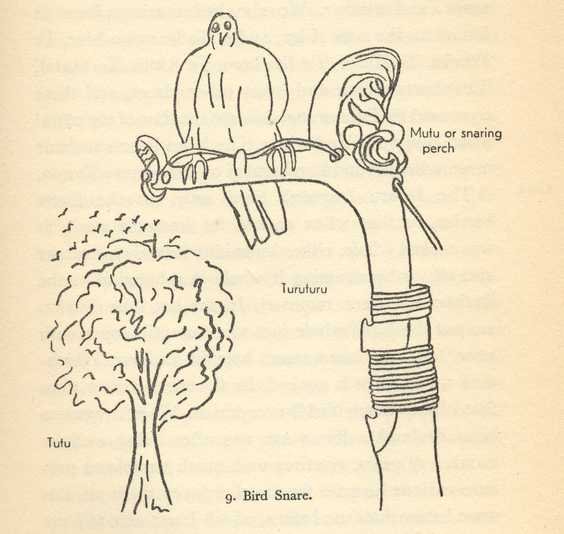
...
Pewa-o-Tautoru, Bird-snare-of-Tautoru; the
constellation Orion in New Zealand. The Belt and Sword form
the perch, te mutu or te teke, while Rigel is
the blossom cluster, Puanga, used to entice the
unsuspecting bird. To visualize the bird-snare we must
remember that Orion, as we see it in the northern
hemisphere, is upside down to the view obtained from New
Zealand where Orion stands in the northern sky
...
If I am right
then we can assume the Sun year was ending with the June
solstice and the Moon year perhaps with April 13.
From April 13 to June 21 there are 172 - 103 = 69 days. From
March 26 to June 21 there are 172 - 85 = 87 days.
The latter alternative is better, not only because of 314
but also because 87 days corresponds to 3 months with 29
days in each. Furthermore, 3-26 can allude to 32 * 6 = 192
(i.e. approximately 13 / 2 * 29½).
The idea of an early season where light is barred from
entering is probably one of the motives behind the designs
of the Mayan first 3 months:
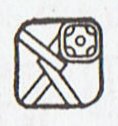 |
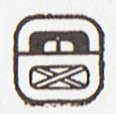 |
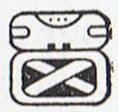 |
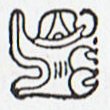 |
|
1 Pop |
2 Uo |
3 Zip |
4
Zotz |
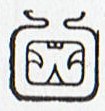 |
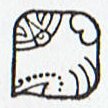 |
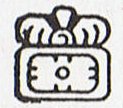 |
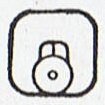 |
|
5
Tzek |
6
Xul |
7
Yaxkin |
8
Mol |
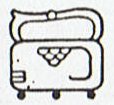 |
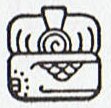 |
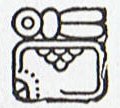 |
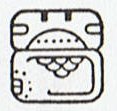 |
|
9
Ch'en |
10
Yax |
11
Sac |
12
Ceh |
 |
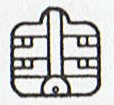 |
280 |
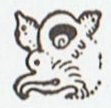 |
|
13
Mac |
14
Kankin |
15
Moan |
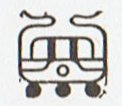 |
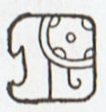 |
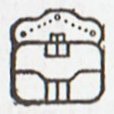 |
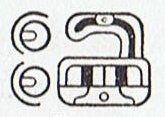 |
|
16 Pax |
17
Kayab |
18 Cumhu |
19
Vayeb |
|























